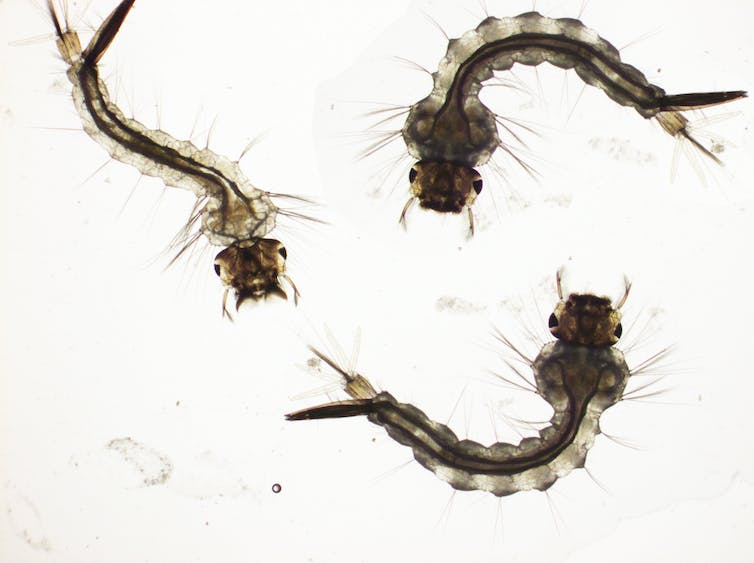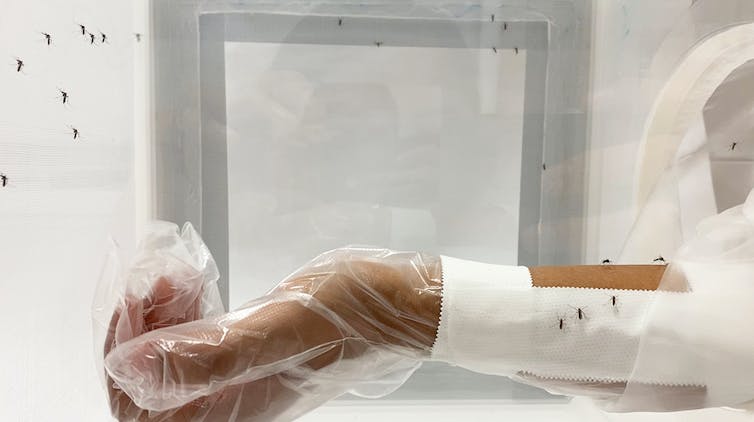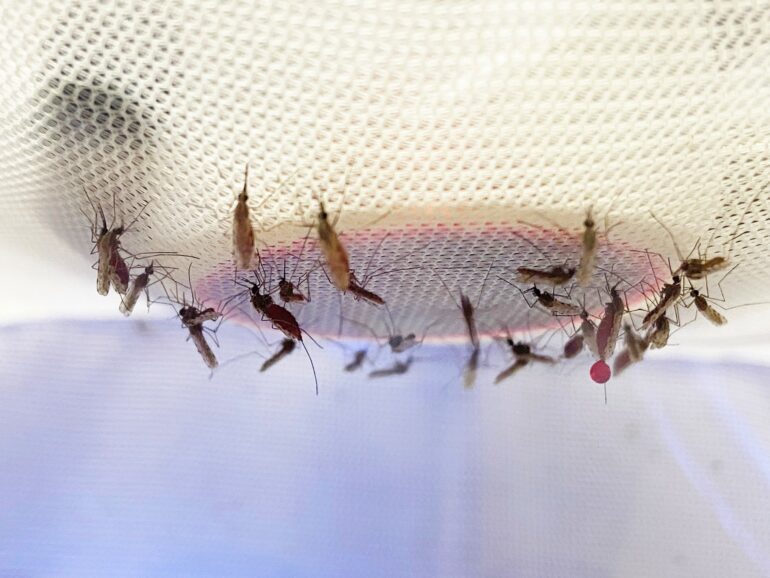Now that summer is in full swing, mosquitoes have come out across the United States. The use of mosquito repellents can protect both your health and sanity this summer.
While mosquitoes leave bothersome, itchy bites on your skin, they can also pose a serious and sometimes deadly risk to your health. When a mosquito bites you, it may transmit harmful pathogens that cause dangerous diseases like malaria, Dengue fever, Zika and West Nile.
Avoiding mosquito bites
Mosquito females bite people to get vital nutrients from our blood. They then use these nutrients to make their eggs. One single blood meal can give rise to about 100 mosquito eggs that hatch into wiggling larvae.

Culex quinquefasciatus larvae Mosquito larvae feed by filtering food from water. Getting rid of standing water can reduce mosquito habitats.
Immo Hansen
There are several ways to avoid getting bitten by mosquitoes, from wearing long, loose clothing and limiting time outside to placing screens over your windows and getting rid of standing water that mosquitoes might use to breed.
However, one of the best ways to protect yourself when you’re going to a place where hungry mosquitoes will be buzzing around is by using mosquito repellents.
Our team at the New Mexico State University Molecular Vector Physiology Laboratory has studied different types of mosquito repellents and their efficacy for over a decade. Here’s what you need to know to protect yourself this summer:
All about repellents
The use of mosquito repellents goes far back in history, certainly predating written historical accounts. Some of the oldest records of the use of mosquito repellents date back to early Egyptian and Roman history. During this period, smoke from smudge fires was often used to repel mosquitoes.
Today, we have more options than our ancestors when it comes to choosing what type of mosquito repellent to use – sprays and lotions, candles, coils and vaporizers, to name some.
These repellents interfere with a mosquito’s sense of smell, taste or both. The repellent either blocks or overstimulates these senses. Scientists understand how certain repellents like DEET work at the molecular level, but for many of them, it is still unknown why exactly they repel mosquitoes.
Testing repellents
We used a variety of scientific laboratory experiments and field tests to find out what works. For some products, testing was as simple as putting a volunteer’s treated arm into a cage with 25 mosquitoes and waiting for the first mosquito bite.

Arm-in-cage experimental setup.
Keyla R. Salas
For others, like citronella candles, we used a slow-speed wind tunnel and put a candle or device between a person and a cage of mosquitoes. Depending on the repellent efficacy of the device, mosquitoes either flew toward the person or away. Another experiment we conducted was the Y-tube choice assay where mosquitoes chose to fly…



